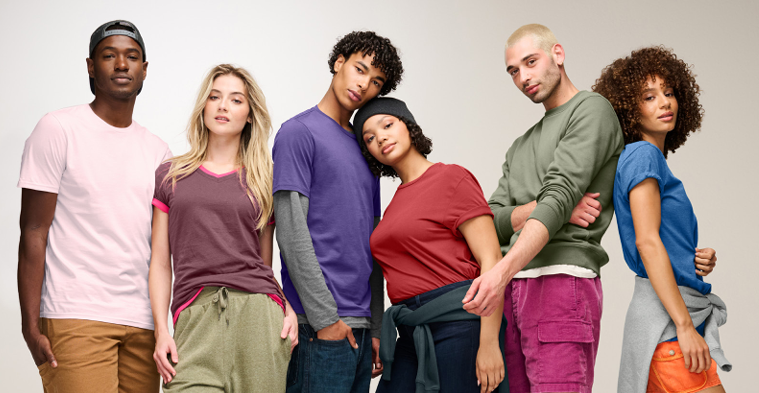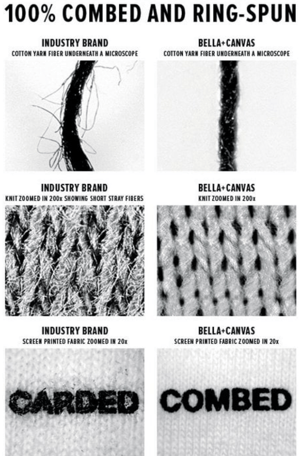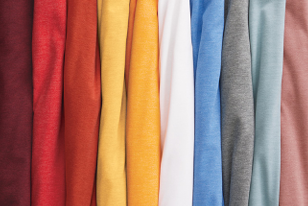- Home
- The Ultimate Guide to T-Shirts for Your Branded Merch

We all know and love t-shirts, but when it comes to your brand, there's more to consider than meets the eye! Today, we're diving deep into the world of tees to help you make informed and impactful choices.
This blog is dedicated to help you make sense of the different options with t-shirt weights, fabrics and styles.
With the average person owning dozens of t-shirts, we want to make sure our customers pick the right t-shirt for their needs and the audience, so it is the shirt that they choose to wear time and time again.
Let’s start with the basics…
What is T-shirt weight?
Different weight categories:
- Lightweight (3-4.5 oz / 100-150 gsm): Pros (soft, comfortable, good for layering, cost-effective). Cons (can be more sheer, less durable). Best for: fashion-forward brands, giveaways, warmer climates.
- Midweight (4.5-6 oz / 150-200 gsm): Pros (versatile, good balance of comfort and durability, often a sweet spot). Cons (might feel slightly heavier in hot weather). Best for: everyday wear, retail merch, general brand awareness.
- Heavyweight (6+ oz / 200+ gsm): Pros (durable, premium feel, holds shape well). Cons (can be less breathable, more expensive). Best for: workwear, vintage aesthetics, brands emphasizing quality and longevity.
The Fabric of Your Brand: Material Matters
Cotton:
- Combed vs. Ring-Spun: Combed cotton has shorter, weaker fibers removed, resulting in an exceptionally soft, smooth, and durable fabric that resists pilling. Ring-spun cotton involves twisting and thinning cotton fibers, creating a stronger, softer, and more refined yarn than regular cotton. Both processes enhance a t-shirt's feel (softer, smoother) and performance (more durable, less prone to shrinking/pilling, better for printing).

- Organic Cotton: Highlight sustainability benefits and potential premium appeal. Other eco friendly t-shirt fabrics include recycled materials.
- Pima/Supima Cotton: Emphasize the luxurious feel and durability. Definitely a higher end shirt with an often higher price point.
Blends:
- CVC (Chief Value Cotton): This basically means there is more than 50% cotton in the fabric.
- Poly-Cotton Blends: The greater amount of polyester that is in a t-shirt, the more color fast the color will be. What that means in terms of your brand is that the color of t-shirt you ordered will stay that way after washing and drying with the more polyester. The more polyester the brighter the color will be from the beginning.
- Tri-Blends (Cotton/Poly/Rayon): Soft, vintage feel and good drape. The percentage of each material will impact the color, drape and softness.
- Performance Fabrics (Polyester, Spandex blends): Often times the audience for your branded t-shirt need some kind of performance features. Performance can mean moisture-wicking, snag resistant, UV protection, safety (aka hi-vis) and antimicrobial.
T-Shirt Styles:
- Crew Neck vs. V-Neck vs. Scoop Neck

- Slim Fit vs. Standard Fit vs. Relaxed Fit

- Long Sleeve vs. Short Sleeve
- Other styles (e.g., raglan, pocket tees)

Did you know that you can take most t-shirts with your logo on it and make it into a compressed shape? This makes a basic t-shirt have a fun presentation and decreases the space needed. These are great for events because they are also labeled on the outside with the size included.
Ideation's is committed to providing the perfect t-shirt for you to put your logo on that will be useful for the recipient as well as mindful of the budget and other criteria. Reach out today to get creative contact us to get started.


